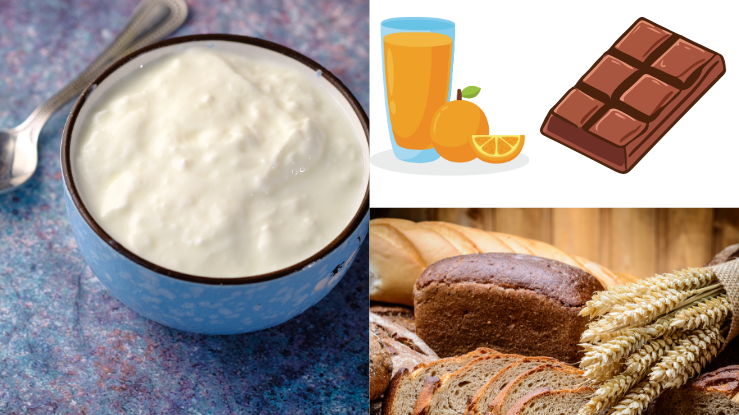Worried about your health but confused about what to eat? You may be surprised to learn that some so-called “healthy” foods are not healthy at all. Many items marketed as nutritious can actually be harmful due to hidden sugars, refined ingredients, and misleading labels.
10 commonly misunderstood “healthy” foods
Many foods marketed as “healthy” can be deceptive, hiding sugars, preservatives, and refined ingredients behind attractive labels. Here’s a list of 10 such foods that may seem nutritious but can actually do more harm than good.
1. Digestive, Whole Wheat, and Health Biscuits
These biscuits are often promoted as high-fiber or whole grain snacks. But most of them contain over 60–70% maida (refined flour) and just a tiny portion of actual whole wheat. Many also have hidden sugars and trans fats, which make them far from healthy.
Tip: Choose homemade oatmeal or multigrain cookies with no added sugar.
2. Granola, Muesli, and Protein Cereals
Packaged cereals often look healthy, especially when labeled as “high in fiber” or “rich in protein.” But most are loaded with added sugars, especially those targeting kids and fitness enthusiasts. They’re also processed and may contain preservatives.
Tip: Opt for plain oats or homemade granola with nuts and seeds.
3. Fat-Free or Low-Fat Mayonnaise
Fat-free does not mean healthy. To maintain taste and texture, manufacturers often add extra sugar, artificial thickeners, or starch. Fat-free variants may even trick your body into craving more unhealthy food.
Tip: Use homemade yogurt-based dressings or hummus instead.
4. Packaged Fruit Juices
Even if labeled “100% juice” or “no added sugar”, these juices often contain concentrated fruit sugars or corn syrup. They lack fiber and deliver a quick spike in blood sugar. Long-term consumption can harm liver health and contribute to obesity.
Tip: Eat whole fruits or make fresh juice at home without added sugar.
5. Brown Bread
Not all brown bread is made from whole grains. Many packaged versions are just white bread colored with caramel or brown food color to look healthy. They usually contain less than 20% whole wheat flour.
Tip: Look for labels that say “100% whole wheat” and check the ingredient order.
6. Flavored Yogurt
Flavored or fruit yogurts are often high in added sugars, artificial flavors, and preservatives. While yogurt itself is healthy, these variants negate the benefits.
Tip: Choose plain Greek yogurt and add fresh fruits or honey yourself.
7. Energy Bars or Protein Bar
Often loaded with sugar alcohols, syrups, and preservatives, these bars are closer to candy bars than health snacks. Some may contain over 20g of sugar per bar.
Tip: Make your own energy bars at home using nuts, seeds, and dates.
8. Detox Waters or Bottled Smoothies
Bottled “detox” drinks or smoothies often come with added sugars and minimal real fruit content. They’re marketed for weight loss but can be calorie-dense and sugar-heavy.
Tip: Make smoothies at home with real fruits, leafy greens, and zero added sugar.
9. Store-Bought Salads with Dressings
The veggies may be fresh, but the creamy dressings are often high in unhealthy fats, sugar, and sodium. A so-called healthy salad can exceed 500–700 calories easily.
Tip: Use olive oil, lemon juice, or vinegar-based dressings.
10. Multigrain Chips and Snacks
“Multigrain” doesn’t always mean healthy. These chips are often made from refined flours mixed with a small amount of other grains, deep-fried, and flavored artificially.
Tip: Choose baked options or go for roasted snacks like fox nuts or puffed grains.


